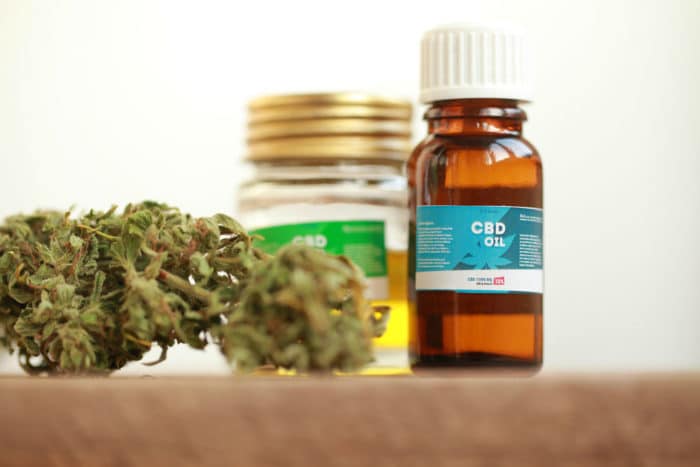The Food and Drug Administration (“FDA”) is cracking down on CBD. The government agency has confirmed that it sent new letters to 15 companies, including Koi CBD, Bella Rose Labs, Pink Collections, and Whole Leaf Organics, late last month for “illegally selling products that contain cannabidiol (“CBD”)” – from supplement gummies to various skincare goods – in “ways that violate the Federal Food, Drug, and Cosmetic Act.” The letters are part of a larger effort by the agency to “explore potential pathways for various types of CBD products,” including drugs, food, dietary supplements, cosmetics, and animal health products, “to be lawfully marketed.”
In its November 22 letters, the FDA cracked down on more than a dozen businesses that have offered for sale and sold products containing CBD, an active ingredient in cannabis, albeit without the psychoactive, high-inducing chemical, taking issue (in large part) with the specific marketing of the products.
The government agency – which is responsible for protecting the public health by assuring the safety, efficacy and security of drugs, biological products, medical devices, food, cosmetics, and radiation-emitting products – asserts that “unlike the FDA-approved CBD drug product [Epidiolex], unapproved CBD products, which could include unapproved drugs, cosmetics, foods, and products marketed as dietary supplements, have not been subject to FDA evaluation regarding whether they are effective to treat a particular disease or have other effects that may be claimed.”
Interestingly, though, the FDA’s lack of approval for virtually all CBD products on the market does not legally prohibit companies from selling products containing the ingredient. As CNN states, it is “not illegal to sell products that are not approved by the FDA.” (Cigarettes, after all, are not approved by the FDA, and under the Food, Drug and Cosmetic Act, cosmetic products and ingredients are not subject to premarket approval by FDA, except for most color additives).
The problem in the eyes of the FDA is not in the simple sale of CBD products, as CBD is not restricted from being included in products, such as cosmetics. Instead, it is centers on the specific marketing of these CBD-containing products and/or the addition of CBD to food and beverages, as “it is currently illegal to market CBD by adding it to a food or labeling it as a dietary supplement,” says the FDA, as CBD is not characterized as a dietary supplement under the Food, Drug and Cosmetic Act.
With the foregoing in mind, the FDA has required that the companies it contacted “take prompt action to correct the violations” of law that it asserted and that they “notify FDA in writing, within fifteen working days of receipt of this letter, of the specific steps you have taken to correct these violations” in order to avoid legal action.
The letters from the FDA come several months after action by a separate government agency. In a September 10 release, the Federal Trade Commission (“FTC”) revealed that it had sent a second round of letters of its own, taking action against three currently unnamed companies that “sell oils, tinctures, capsules, gummies, and creams containing CBD.” The FTC stated that each of the companies that received letters had “advertised that its CBD products treat or cure serious diseases and health conditions,” ranging from anorexia, bipolar disorder, post-traumatic stress disorder, anxiety, and depression to heart disease, cancer, and “a wide spectrum of autoimmune disorders.”
According to the FTC, one company went so far as to assert that it has participated in “thousands of hours of research” with Harvard researchers to “bolster its claims that CBD has been ‘clinically proven’ to treat cancer,” among other illnesses.
It is unclear whether the companies on the receiving end of the FTC’s letters can actually back up their claims, advertising claims must be “supported by competent and reliable scientific evidence” in accordance with the FTC’s requirement that all express and implied advertising claims, including health claims, be substantiated before they are disseminated by way of a company’s marketing.
The increased attention of regulators comes as companies, including cosmetics ones, flood the market with CBD-infused products, creating an industry with sales that are expected to top $5 billion in 2019 – a 700 percent increase from 2018 – and reach $24 billion in sales by 2023.




